- Home
- Andy McNab
Dead Centre ns-14 Page 10
Dead Centre ns-14 Read online
Page 10
I explained the who, what and where.
‘So the attack was five days ago?’
‘I don’t even know if they’re still alive.’
He fished into a big pocket that looked like it had been specially sewn into his coat, pulled out an iPad and sparked it up.
‘How are things in the K&R world?’
His fingers played about on the screen. ‘Business is good. I’ve stopped working for a percentage of the premium saved. I can normally get them out in about three months, so it’s better just to take a set three grand a day.’
‘In that case, you can pay for these.’ I offered him the plate of Danishes but he shook his head. I dunked one in my coffee.
‘Still busy in South America, Central America, Mexico. Africa is still good, and of course Somalia’s top trumps.’ He finished tapping away. ‘Not a thing, Nick. They don’t show up anywhere.’ He looked up. ‘Do you know who’s holding them? If they’re with a clan? Has anyone been approached about a deal?’
‘Nothing. The BG should be keeping their real identities quiet.’
‘That’s good. But somebody somewhere must have been approached.’
He turned the iPad so both of us could see the readout. ‘As far as we know, twenty-nine vessels held and six hundred and eighty-one hostages.’
The list was divided into countries, age groups and occupations. ‘There’s a lot of sea out there. Maybe they didn’t make it back to the coast.’
That got me worried. ‘Do you think they’ll have been zapped?’
‘Unlikely. They’re merchandise. But that’s not to say the BG didn’t put up a fight and the three of them were killed — or they may have sunk. Those fishing skiffs they use aren’t exactly on the Lloyd’s Register.’
‘What about the four Americans?’
‘That was a total mess. The Somalis went to negotiate with the US Navy. The US Navy didn’t believe them. They held them instead. Their friends on the captured boat thought they were being stitched up, so they killed the Americans.
‘In general, if they’ve got them, they still won’t kill them. Only when they stop being worth money do you have to get worried. If they don’t have outside investors, they’d have to take a loan from their clan warlord to keep and feed the hostages. They might be using your three to pay off debts they owe the clan. Who knows? It’s complicated out there.
‘But if they are alive, even if they’ve been sold on, someone would start to negotiate, someone would make contact. Otherwise there’s no point in keeping them.’
I nodded, and threw down some more Danish. ‘You’re sure they’re not anywhere in that box of tricks?’
‘Just a sec. Maybe I can work out which group took them. You said it was towards the end of last week?’
He logged onto a website, and I watched him enter his password. The page opened up on the Anti-piracy Environment Awareness Chart. It wasn’t a chart at all, more a collection of big break-out boxes, with Google maps, pie charts and bar graphs. He expanded the page to show me something.
‘Depending on the time of year, some areas are more swamped with pirate activity than others. These people are fishermen. They know the winds and tides. They know the sea. They know when they can go out there safely. They know when they can’t — well, the successful ones do. Look.’ He pointed at the screen. The Monthly Piracy Risk showed a satellite picture for each month of the year, and then dots where the attacks had taken place.
‘See the difference between March and June?’
The Gulf of Aden in June had just a few dots on it, and the same past the Horn of Africa and out into the Indian Ocean. But March was a different story. The area was almost black with dots, as was the whole area east, north and south.
‘It’s because of the north-eastern monsoon. That comes down from India and Arabia, normally about December to March. The swell is only about two or three metres, so those small craft can use the wind to negotiate it, get clear of the coast and go out there looking for a mother-ship. If they strike lucky, they might hit what they want to hijack straight away.
‘But June and October are when the south-west monsoon comes in. We’re talking thirty-knot winds and swells of ten metres. That’s the same size as the Japanese tsunami, Nick. They haven’t a hope of making it out to sea without capsizing.’
‘So piracy is seasonal?’
‘Yes. And because we can predict winds and tides, we can have a good idea of where and when they’re going to strike.’
I looked at the pictures. The yellow dots on the Google Earth map showed the 44 per cent of ships that had been approached. The green ones showed that only 18 per cent of those were actually attacked. They must have decided the others were too big or too fast, or maybe painted grey, with big guns. A bar chart showed activity by days of the week. I pointed to Friday and Saturday. ‘Hardly anything happening there. These lads like their weekends, like everyone else.’
He chuckled politely. ‘The British Navy takes the lead on anti-piracy at the moment. They use this to try and predict where the strikes might happen, so they can concentrate their resources. As I said, there’s a lot of sea out there. If they don’t get out a mayday, nobody knows what’s happening.
‘But what we do is put on an overlay that shows the information we’re gaining from dealing with the clans and the kidnappers, to see which groups are active, who’s done the lifting. So let’s have a look at what’s been going on around the Seychelles.’
Every time there was a dot, there was now an overlay and a number between 1 and 19 that represented different groups. The numbers were random in all the areas for March. It looked like a free-for-all.
‘Sorry, Nick. Sometimes the clans designate areas for their own. But it’s open season out there in March. Prime time. If only the yacht crew had had access to information like this, they’d have known where to steer clear of. It’s stupid going into those areas at the best of times. What was going on?’
‘I haven’t got a clue.’ I sat back in the chair. He could see the worry on my face.
‘Someone, somewhere, will know. If they’re alive, the Somalis will have contacted somebody.’ He pursed his lips. ‘You know these three, don’t you?’
‘Yeah. One’s a guy who used to be in B Squadron. The other is the widow of a dead mate. The child’s from her new marriage.’
I got to my feet and picked up my black parka. I needn’t have brought it with me. It was a lot warmer in London than where I’d come from.
‘Tell you what, mate, as soon as this is over, and Anna’s back, why not come over for a week?’
He stood up, and we shook hands again. ‘Any help you need, Nick, you know where I am.’
‘One more thing. Al-Shabab — they still active?’
He nodded. ‘Don’t even think about it. Go find your contact.’
I sat back down and couldn’t do anything but think about it.
Al-Shabab, the hard-line Islamist movement, was Somalia’s Taliban, even down to the suicide bombing and severed heads. They’d been bolstered by experienced fighters from Saudi Arabia, Egypt, Afghanistan and Pakistan, and now controlled most of the southern part of the country. If those fuckers discovered my three were high value, they’d be coming to lift them from the clans. Tracy, Stefan and BB would die in captivity, or be executed, because … Well, just because.
Jules was looking for something. ‘The Gents. You know where?’
‘Yes, mate.’ I pointed. ‘Let me have a look at that chart again, will you?’
He got it online and headed left of the counter.
4
Green Dragon Hotel, Hereford
15.00 hrs
The Green Dragon on Broad Street felt like it had been around as long as Hereford had been. It was the kind of ye olde tourist hotel where the Rotary Club met every Friday and Saga coach tours stopped for scones and tea.
The TV wasn’t tuned in to RT, so I sat on the big flowery eiderdown and tapped Anna’s number on the iPhone screen
instead. It was a lot earlier than I normally called her, but I was going to have a pretty full day. I needed to catch up with Crazy Dave and then trawl the bars for Jan.
I’d already tried the last address I had for her, a flat in a three-storey pebble-dashed housing association joint on the Ross Road at the edge of town. She’d taken it over from her mum years ago. It was almost opposite where the old Regiment camp used to be. In her early husband-hunting years, she must have thought it gave her pole position. There’d been no one at home, and I wasn’t about to start knocking on doors to find out. Not yet, anyway. It was Friday. Unless she’d changed the habit of a lifetime, she’d be out on the town sooner or later.
The phone only rang a couple of times before she picked up.
‘How’s it going?’
‘Better than yesterday. Where are you?’ She was inside this time. I could hear Arabic TV in the background and no gunfire.
‘Back in the UK, in Hereford. You OK to talk?’
‘You took the job?’
‘Maybe.’ I explained. ‘I’m banking on BB keeping them alive long enough for me to find out where they are. Any luck with Frank?’
‘All I can tell you is that he was originally called Vepkhiat Avdgiridze. He’s not Ukrainian. He’s Georgian, from South Ossetia. It’s been fighting for independence for decades.’
‘I know. I was there a year or two before Putin went in.’
North Ossetia was part of Russia, but South Ossetia had always been disputed territory. Most South Ossetians carried Russian passports and wanted to break away from Tbilisi. They had declared it a republic in 1990 and the Georgian government had sent in tanks. A series of wars followed, until the Russians finally invaded ‘to protect their citizens’ in 2008. Well, that was one of the versions. Since then, it had been recognized as an independent republic by Venezuela and a handful of other countries that sucked up to Moscow, but the Georgian government still saw it as occupied territory.
‘Where does Frank fit in?’
‘He finances the South Ossetian independence movement. He helps them attack Tbilisi in any way they can. He’s not short of cash. It looks like he has fingers in every pie. Oil, gas, real estate. He backed Putin when he reorganized things. He’s no good guy, but he has class. He doesn’t own a football club or run for provincial governor. He keeps himself to himself. For him, it’s all about business, all about the deal.’
‘Are you sure he’s the one?’
‘I’ll send a picture.’
‘What about you, Anna? You OK?’
‘I’m fine. But, you know, I’ve been thinking … Maybe … Maybe I should stay a while longer. If Gaddafi retakes Benghazi, I should be here.’
‘And maybe Bahrain, maybe Syria?’
I kept it light, but we both went quiet for a while.
‘So when will you be coming home, Nicholas?’
‘If they’re alive, I’m going to have to go and get them.’
I heard an intake of breath. ‘Yes … Of course.’
There was a pause.
‘Nicholas, I have to go.’
‘I’ll call you tomorrow. But I won’t have a clue what you’ve been up to because pointy-head TV doesn’t show RT.’
She’d have no idea what pointy-head meant, but she started to laugh. I liked it when she did that.
‘Be safe, Anna.’
‘And you, Nicholas.’
The line went dead.
I sat on the bed, trying to make sense of our non-conversation.
My iPhone alerted me to the arrival of Anna’s MMS. I opened it up. The photo was slightly fuzzy and taken from a distance as he got into a limo, but it was Francis Timis all right.
I juggled tubes of instant coffee, fired up the small plastic kettle and worried about Anna. It was becoming a bit of a habit. It wasn’t just the danger she put herself in. I missed her. She was too busy saving the world for us to spend much time together. But I couldn’t blame her. Whoever said war is a drug was right on the money.
I called Crazy Dave on the room phone. I was pretty sure he’d ignore a withheld number or one he didn’t know, but pick up on a local call. I wasn’t wrong.
‘Dave …’
‘What?’
‘You about for a brew in, say, an hour?’
‘If you want work, you can shove it up your arse. As of sixteen hundred hours today I’m retired.’
‘Then get the kettle on for half three. You can still present yourself with a gold clock at four.’
‘Yeah, funny. What do you want?’
‘I’ll explain when I get there.’
I was glad I’d caught him in a good mood.
5
The Green Dragon’s car park was at the rear of the building. The garaging had probably once been filled with horse-drawn carriages. I checked out and drove my grime-covered 911 past Ascari’s café and onto Broad Street. The sky was dark and heavy with cloud.
I used to spend a lot of my time-off in Ascari’s, eating toast and drinking coffee. It was where I’d really got to know Crazy Dave. When I joined he was already a sergeant, something like three generations above me. He was in A Squadron, I was in B, so I didn’t get to see him that much. But over coffee and scrambled egg, we’re all the same. We both used to spend our Sunday mornings there, reading the supplements; him because he was trying to avoid his wife, me because I didn’t have one. Crazy Dave didn’t need to go there so much now. His wife had left soon after he’d got himself fucked up. His legs were useless, and as far as she was concerned, so was he. He was in and out of hospital like a yo-yo, and she didn’t fancy joining him for the ride.
There was a bit of bad blood between us too. I’d felt sorry for him when we met up again in 2005 — but it only took me a week or two to start thinking two fucked-up legs weren’t enough. A friend of mine from Regiment days tapped Crazy Dave for some work. He was in the early stages of motor neurone disease and wanted one last big pay-off so his wife would have a pension. So far so good, but Crazy Dave had found out and taken advantage of him. Charlie was so desperate he’d accepted only a fraction of what the job was worth, and Dave had trousered the rest.
I made him give Charlie’s widow the lot. In return, I’d hold off telling the guys who came to him for work how much of a markup he liked to take, or telling the companies that used him that he had a quality-control problem — he didn’t even check his workforce had fully functioning limbs.
The bit I’d enjoyed most was telling him that if he didn’t get his finger out and have the cash in her account within twenty-four hours, I’d be straight over to separate his bony arse from his wheelchair.
Next time I saw him, a year later, that was precisely what I did. I’d needed some int, but I’d fucked up. Instead of just asking him for a favour, which would have given him a bit of a kick, I’d tried to blackmail him. He gave me the int, and told me we were all square. Then he told me that if I made the mistake of thinking otherwise, he had three hundred guys on his Rolodex who’d happily take a shovel to my face.
If only I could have left it at that.
There are times when you have to accept you’ve been fucked over, and that was one of them. But it pissed me off that he made so much money from scamming his own people, and something in me snapped.
I grabbed his right calf and started towards the door, dragging him and the wheelchair behind me. He screamed and shouted at me to stop, but I kept right on going. When we reached the door Crazy Dave couldn’t hold onto his chair any longer and fell out on his arse. I dragged him through the rain and only let go when we reached his Popemobile. He flailed around on the wet tarmac, trying to pull himself along on his elbows, back towards the house.
To this day, I didn’t know why I did it. It was immature, gratuitous and got me nowhere — but, fuck, it put a smile back on my face.
Unfortunately, I now needed his help again.
6
I turned right at the junction with Broad Street, passed the front of the hotel and heade
d towards the River Wye.
The only crazy thing about Crazy Dave was that he’d earned his nickname because he wasn’t: he was about as zany as a teacup. He was the kind of guy who analysed a joke before saying, ‘Oh, yeah, I get it. That’s funny.’ But then again, he wasn’t trying to find work for a bunch of stand-up comedians — even if we sometimes thought we were pretty fucking amusing.
There had always been a broker knocking around Hereford. He had to be ex-Regiment because he had to know the people — who was in, who was getting out — and if he didn’t, he had to know a man who did. When Crazy Dave left after his twenty-two years, he became an intermediary between ex-Regiment guys and the private military companies and individuals who wanted competent people. Dave got his cash by providing the right person for the right job. There’s an HR department in any civilian organization, so why not in a military one? After all, it would be a shame to waste all those skills the taxpayer had paid for us to learn.
Dave’s business was a perfect fit with Cameron’s Big Society. We get the guys into the army; we pay for them to be trained; we pay them to fight, and then we let them go and use their skills in the outside world. Some of them even filed tax returns.
I was heading for Bobblestock. It had been one of the first of the new breed of estate that had sprung up on the outskirts of town when Thatcher tried to turn us all into homeowners. The houses were all made from machined bricks and looked as if they were huddled together for warmth. They all had 2.4 children inside and a people-carrier on the drive.
Crazy Dave lived on the high ground. He’d told me proudly that he’d bought into phase three of the build. The window frames were painted brown instead of white to distinguish it. Apparently that gave the houses a more substantial look.
I drove into the estate. Nothing had changed in the five years since I’d last seen him. I stopped outside his brick rectangle and got another chance to admire the garage extension, which looked as if it had been assembled from a flat-pack.
The house to the right had been called Byways last time I was round. Dave must have new neighbours. Number 53 was now called Rose Cottage. There was fuck-all cottage-like about the place. A net curtain twitched inside. Maybe they’d bought it recently and were still coming to terms with the guy in the wheelchair next door having rough men arriving at his house at strange times of the day and night. They probably thought there was some sort of sex thing going on.

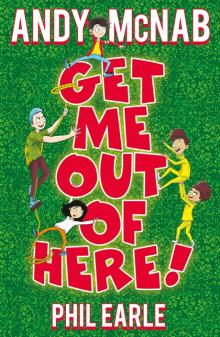 Get Me Out of Here!
Get Me Out of Here!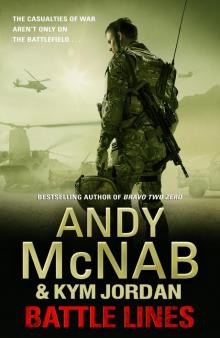 Battle Lines
Battle Lines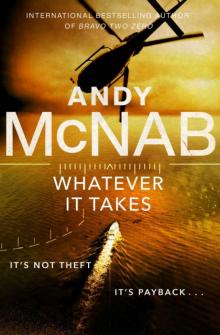 Whatever It Takes
Whatever It Takes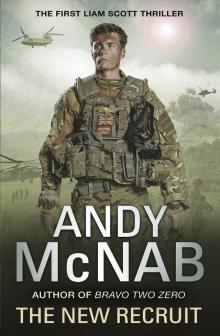 The New Recruit
The New Recruit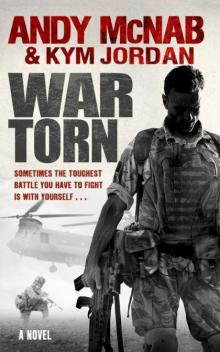 War Torn
War Torn Brute Force
Brute Force Crossfire
Crossfire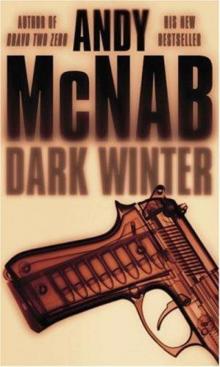 Dark Winter ns-6
Dark Winter ns-6 The Grey Man
The Grey Man Spoken from the Front
Spoken from the Front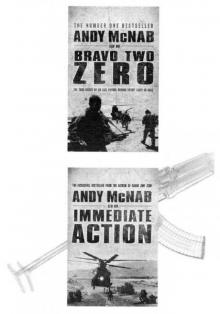 Meltdown
Meltdown Recoil
Recoil Nick Stone 1 - Remote Control.
Nick Stone 1 - Remote Control.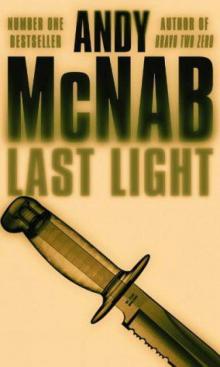 Last Light ns-4
Last Light ns-4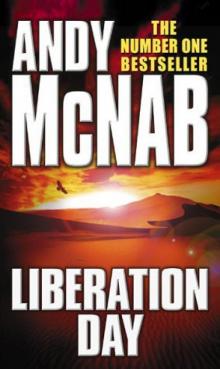 Liberation day
Liberation day Deep Black
Deep Black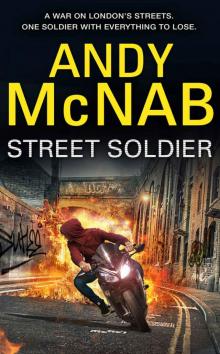 Street Soldier
Street Soldier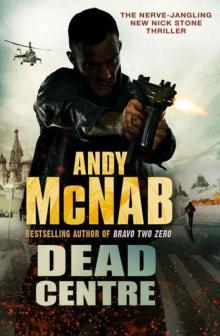 Dead Centre ns-14
Dead Centre ns-14 Exit wound ns-12
Exit wound ns-12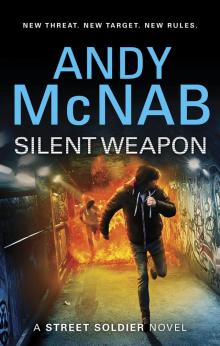 Silent Weapon
Silent Weapon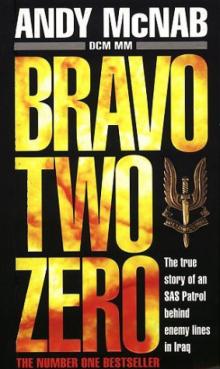 Bravo two zero
Bravo two zero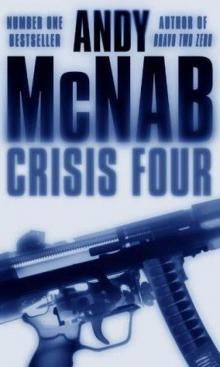 Crisis Four ns-2
Crisis Four ns-2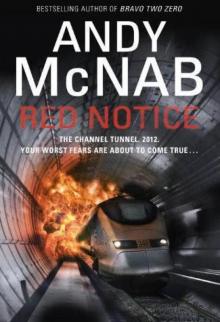 Red Notice
Red Notice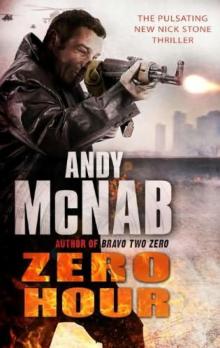 NS13 Zero Hour
NS13 Zero Hour Firewall
Firewall Last Light
Last Light Aggressor
Aggressor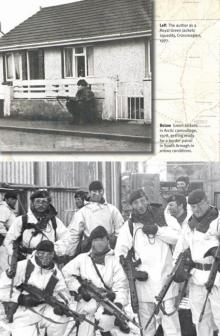 Seven Troop
Seven Troop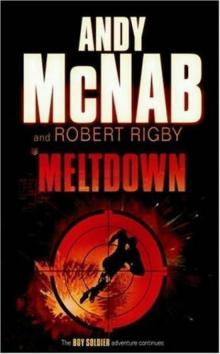 Meltdown bs-4
Meltdown bs-4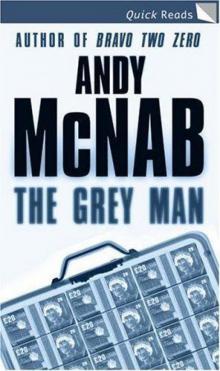 The Grey Man (quick reads)
The Grey Man (quick reads)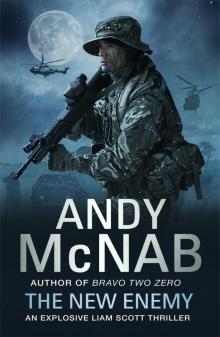 The New Enemy
The New Enemy Avenger
Avenger FireWall ns-3
FireWall ns-3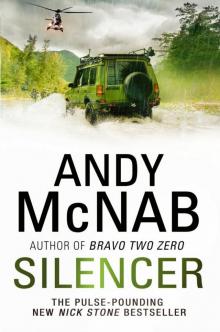 Silencer
Silencer Last Night-Another Soldier…
Last Night-Another Soldier…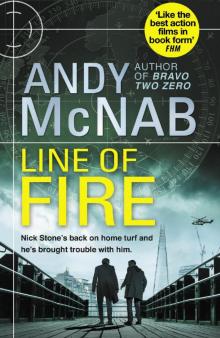 Line of Fire:
Line of Fire: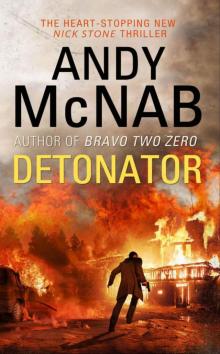 Detonator
Detonator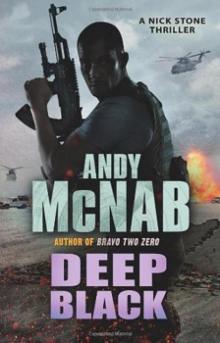 Deep Black ns-7
Deep Black ns-7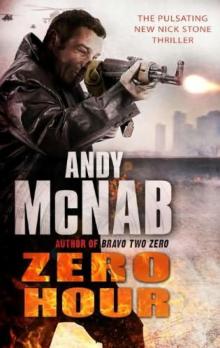 Zero Hour (2010) ns-13
Zero Hour (2010) ns-13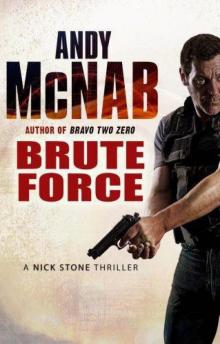 Brute Force ns-11
Brute Force ns-11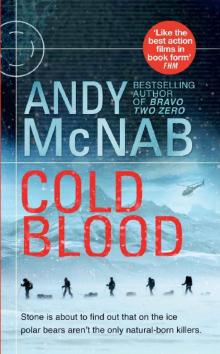 Cold Blood
Cold Blood Terminal Velocity
Terminal Velocity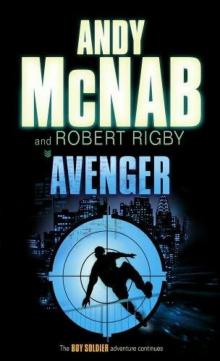 Avenger bs-3
Avenger bs-3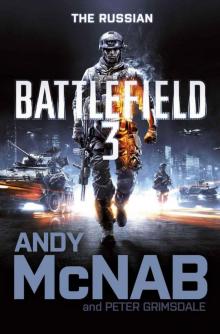 Battlefield 3: The Russian
Battlefield 3: The Russian DropZone
DropZone Zero Hour
Zero Hour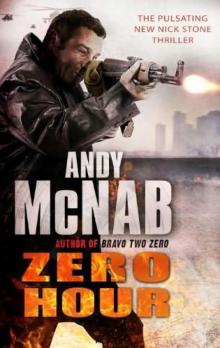 NS13 Zero Hour (2010)
NS13 Zero Hour (2010)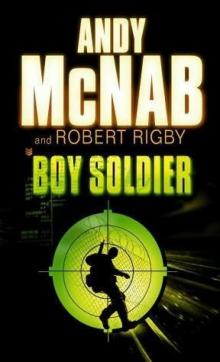 Boy soldier bs-1
Boy soldier bs-1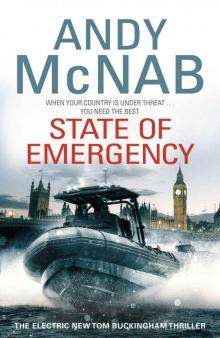 State Of Emergency: (Tom Buckingham Thriller 3)
State Of Emergency: (Tom Buckingham Thriller 3)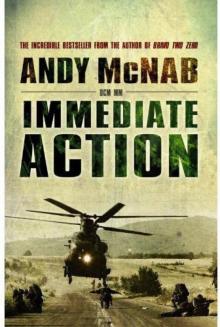 Immediate Action
Immediate Action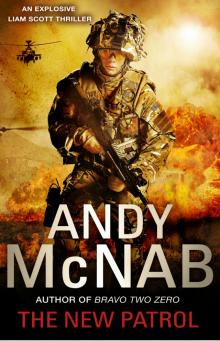 The New Patrol
The New Patrol Crisis Four
Crisis Four Boy Soldier
Boy Soldier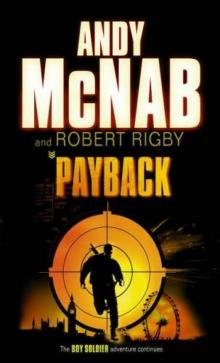 Payback bs-2
Payback bs-2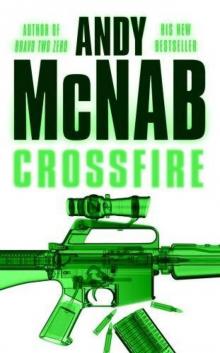 Crossfire ns-10
Crossfire ns-10 Today Everything Changes: Quick Read
Today Everything Changes: Quick Read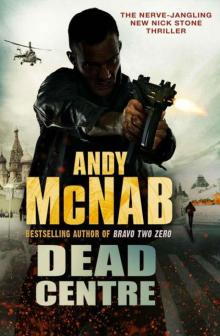 Dead Centre
Dead Centre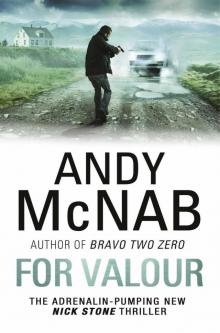 For Valour
For Valour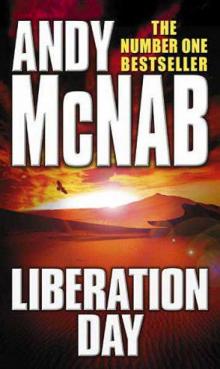 Liberation Day ns-5
Liberation Day ns-5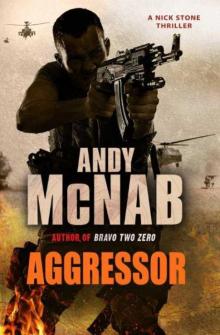 Aggressor ns-8
Aggressor ns-8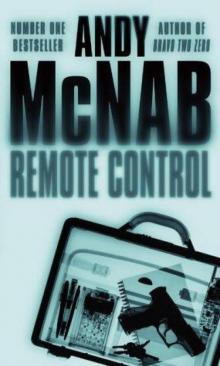 Remote Control ns-1
Remote Control ns-1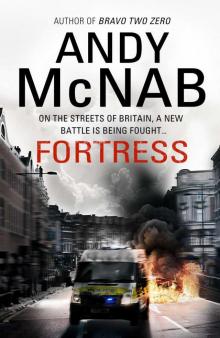 Fortress
Fortress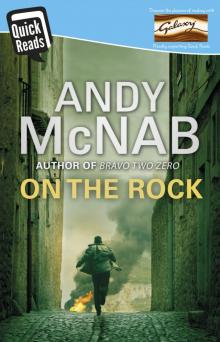 On the Rock
On the Rock Dark Winter
Dark Winter